- Home
- John le Carré
Absolute Friends Page 22
Absolute Friends Read online
Page 22
And come four o’clock or thereabouts—he must first ring a certain number from a phone box—he will make his way by one of several routes to Bedford Square, to a terrace of stately pillared houses variously occupied by publishers, benevolent societies or, in the case of Number Twelve, the Foreign Debenture Ownership Company Limited, which to his knowledge owns nothing but the brass plate mounted in its porch.
And having unobtrusively reconnoitered the square for familiar or suspicious faces—repeated visits to the Edinburgh School of Deportment have made such things second nature to him—he admits himself with his own door key and enters his other home—or not quite, for once inside he must wait in front of a second door until a jolly girl called Laura with freckles and a pony-club smile and her father’s signet ring on her right hand admits him to the inner bailey, known to its denizens as the Wool Factory.
Here at last, in Bedford Square, the many disparate fragments of Ted Mundy—actor, novelist, befriender, major’s son, misfit, dreamer and pretender—come together to make a single hero.
Here in the Wool Factory he is welcomed with the veneration that is absent from his other lives. Gone the contemplative humility of the strip club. This is Mundy erectus.
Here his true feelings are understood, his talents appreciated for what they are.
Does anyone in the great outside know, for instance, that Ted Mundy is a master of the subminiature camera, with a failure rate of less than nine percent in eight years and literally thousands of exposures? Well, here in the Wool Factory they know.
A deception operation is a complex affair and Mundy is the hub of it, the point man, the racing driver who will pay the price for the loose nut or bit of slack in the steering wheel.
First, in some distant catacomb of secret Whitehall, a huddle of mandarins determines what antiquated state secrets may be compromised without loss, or subtly altered to mislead. To these they will add their wish list of “desirable untruths”—fabrications which, if successfully planted, believed and acted upon, will cause the enemy to point his guns in the wrong direction.
The Bedford Square creation team, alias the wool-spinners, now gets down to work. There are ultrasecret files to be faked, loose minutes, interdepartmental memos between committees whose notional existence is already enough to spark the enemy’s paranoia. There are indiscreet conversations to be overheard—in the canteen, the men’s room, or the pubs around Trafalgar Square where the plotters like to drown their sorrows of a weekday evening.
But who are these nonexistent villains, these artful wreckers and intriguers of Whitehall’s secret overworld? Where do they meet to do their dirty work and when, who are their ringleaders? Which social stratum are they drawn from, what skills do they bring to the table? What are their appetites, rivalries, failings? And how did Mundy Two, this vengeful, unpromoted malcontent who stalks their murky corridors, ever get their documents in his sights?
The team functions under Amory’s theoretical stewardship, but it is Mundy who is the star, the driving force, roaming the room with his hand thrust into his hair, tossing out ideas, retracting them, trying on stories like clothes. Because when the lights go down everybody in the house knows—from Laura who opens the door to him, to the forgers and scriptwriters who compose the documents for him to steal, to the technicians in the basement who help him photograph his booty with just the right amount of clumsiness, to the dispatchers who rehearse his lines with him right up to the moment when he boards the bus to London airport—all of them know that Ted is on his own, it’s Ted’s arse on the line if anything goes wrong, and Ted who will spend the next ten years rotting in some hellish Communist prison.
And Mundy knows it too, and is frightened stiff. It takes all the sterling qualities of Mundy One, patriotic public-school prefect and major’s son, not to mention a couple of stiff ones at the departure lounge bar, to get him onto the plane at all. If he is escorting a delegation, he is pathetically grateful for their protection; if not, he burns alone.
But once in the air, all that changes. The fears fall away and a sensation comes over him that is like a kind of grateful peace. Soon Mundy Two is replacing Mundy One. The England he is leaving behind becomes his enemy, and by the time he enters the grim chicanes of whichever East European airport is receiving him, he could almost hug the hard-faced frontier guards, so effectively has he persuaded himself that the pretending is over, he can breathe free air, he is among real friends at last.
And he is. As often as not, these days, Sasha himself will be waiting at the airport, for their relationship is by now well attested. And if Mundy is worried that one of his compatriots may raise an eyebrow at such a close friendship with an East German official, then Sasha or the ponderous Lothar or the intellectual Horst will fix a more discreet reunion, in a hotel or a safe flat rented for the occasion. But this is not to undermine the intense companionship that the two one-man dogs continue to enjoy.
Faithful to Sasha’s instructions, later ratified by Amory, Mundy has refused from the day of his recruitment by the Professor to be handled by anybody but Sasha personally. He will not, for example, consort with one of the Professor’s many fine operatives attached to the East German Embassy in London. He will not at any price hover outside Harrods after dark, waiting for a car with a certain license plate to slow down so that he can shove a package through the window. He will not bury his microfilm in a flower bed beside the Serpentine, or make chalk marks on iron railings, or exchange shopping bags with a lady in a green hat standing in the Waitrose fish queue. The very most that this temperamental and demanding Stasi agent will do is hand-deliver his material to Sasha each time he meets him—which is when, and only when, the British Council sees fit to send him to an East European country.
Therefore it is Sasha alone who in the first breathless hours of Mundy’s return to the Communist fold takes delivery of his crop of hidden microfilm in whatever concealment device the Professor’s people provided last time round—a tin of talcum powder, a tube of toothpaste, a transistor radio. It is Sasha again who questions Mundy about exactly how he brought off some recent spectacular coup. And no trip is ever complete until the two friends have enjoyed a jaunt together just like old times—a walk alone in the forest, a bicycle ride, or a meal in some country hostelry without benefit of minders. And Sasha, like any good case officer pleased with his agent, will not forget on these occasions to provide him with a personal token of his gratitude—nothing that could embarrass him, naturally—but perhaps an antiquarian copy of a German literary classic to add to his growing library back in London, or a piece of Dresden porcelain that he might have picked up at a flea market, or a tin of Russian caviar.
Only rarely, and with unfeigned reluctance, does Sasha consent to parade his prize catch for the Professor’s inspection. For instance, at yet another interminable dinner held in the Professor’s villa in Potsdam. Addressing Mundy—and Sasha incidentally at his side—the Professor eschews the tawdry details of espionage in favor of a grand vision of world affairs.
“The day will come, Teddy—and you two boys will live to see it, I assure you—when the walls of the capitalist citadel will be toppled from within.” Since the Professor is showing off his English, Sasha has no need to conceal his boredom. “The consumerist society will consume itself. When your manufacturing declines and your service industries abound, we already see the writing on the wall. And I am not referring to a certain Wall not far from here, either!” Risqué joke. “Do you not feel, Teddy, in your own country, that while the poor starve and the rich choke on their own greed, the wheels of industry are grinding slowly to a standstill?”
What Mundy says in reply to such banalities is immaterial. What matters is how well he scores in the searching viva voce examination that follows just when he is feeling most relaxed.
“That was a very interesting report you gave us last month concerning the activities of your clandestine Black Propaganda Committee. We were most taken with the proposal to spread rumors of
an outbreak of typhus in Romania in order to coincide with the conference of the World Federation of Trade Unions.”
“Well, I was pretty pleased with it too,” Mundy confesses. “Mind you, it’s only a draft working paper. If the Foreign Office has anything to do with it, it’ll never get off the ground.”
“And how did you obtain it, exactly?”
“Photographed it.”
If they start to question your integrity—which they periodically will—clam up, Amory advised him long ago. Traitors resent being distrusted. You’re no exception.
“I think we know that, Teddy. What we are not quite clear about is the circumstances in which you photographed it.”
“It was lying in Mary Outhwaite’s in-tray.”
“Mary Outhwaite who is —”
“Officially, she runs the overseas students desk. Unofficially, she heads up the Special Intervention Group, which acts as the umbrella for the Black Propaganda Committee.”
As you bloody well know, he nearly adds.
“And is Mary in the habit of leaving hand-delivered, top secret, subscriber-only documents lying in her in-tray for stray members of other departments to come along and photograph?”
“No,” Mundy snaps, bridling at stray members.
“Then to what happy circumstance may we owe your triumph?”
“Mary’s in love.”
“So?”
“There’s a picture of him on the desk.”
“Thank you, the left half of his face is in the shot. He appears a pretty fellow from what we could see of him. Perhaps not overendowed with intellect.”
Pretty fellow? Who the hell taught him his English? Mundy imagines a queer Shakespearean pedagogue locked away in the Stasi language school.
“He’s been cheating on her,” he replies. “I walked into her room and found her sitting at her desk crying her eyes out.”
“Under what pretext did you walk into her room?”
“It wasn’t a pretext,” Mundy retorts waspishly. “She’d been asking my opinion on whether a modern historian I’d escorted to Budapest would be a suitable person to sit on one of her advisory committees. When I found her weeping, I started to walk out of the room but she called me back. She needed to talk to someone. She flung her arms round me and sobbed. When she’d calmed down she looked a mess and needed to clean up. She’s a senior officer so her office has its own anteroom and lavatory and I insisted on waiting for her till she came back in case she broke down again.”
“How very gallant of you.”
“I was lucky.”
The Professor is already grinning broadly. “And as Napoleon would say, since you are lucky you are a good officer.”
And to prove his point he produces a little box, and from the box a garish medal appointing Mundy a Hero of the Democratic Struggle Class II, which happens to be roughly the equivalent, in the hero ratings, of a medal conferred on him not six weeks earlier at a private ceremony in Bedford Square conducted by no less a dignitary than Amory’s chief, known otherwise to Mundy as the Parson, and—for all Mundy knows—of yet another medal, conferred a generation earlier on a certain gallant British major for emptying twenty saddles.
And this is not the only interrogation Mundy must withstand by any means, either at the hands of the Professor and his minions, or of one Orville J. Rourke—which, if it isn’t a made-up name, ought to be.
Rourke is an American, and people don’t call him Orville, they call him Jay. He descends on Bedford Square in a cloud of mystery, purportedly on attachment from the Central Intelligence Agency in Langley, Virginia.
“Then he can bloody well go back there,” Mundy flares, when Amory breaks the news to him that Rourke is henceforth added to the team.
“Want to explain why?”
Mundy searches for a reason for his indignation. He is only recently returned from a harrowing tryst in Kiev, and there is a lot of Mundy Two left in him.
“What am I supposed to tell Sasha?” he demands.
“Nothing. There are things we don’t tell you, for your own health as well as ours. This is something you don’t tell Sasha. He can never have supposed his stuff wasn’t being passed to the Americans, but there’s no need to shove it in his face.”
“What job’s Rourke supposed to be doing?”
“Liaison. Research. Cost-effectiveness. What do I know? Mind your own business.”
And of course Rourke fails to live up to Mundy’s sulky expectation of a bullet-faced, short-back-and-sides CIA automaton. He is spare, civilized, traveled and good-looking, a black-haired Celt with a widow’s peak. He is patrician, in a lazy sort of way, with a droll brand of curiosity that invites you in: “Oh my God, you think that?” he will murmur in his Boston Irish drawl. “Well, you’re a scream, I will say. Why don’t you tell me all about it?” When he discovers that one of the team is half French, he talks good French with her. His German turns out to be equally efficient. His face is wide and decent, his gait a little sloppy, a little tentative, which adds to his generally pleasing manner. He has his suits made in Dublin and wears Harvard shoes with no toe caps and heavy-welted soles. He’s quaintly fastidious about where he puts his large feet. To Mundy’s horror, he served with the Agency in Vietnam, a crime to which he cheerfully confesses at their first encounter in Amory’s office.
“Well, I opposed that war and I still do,” Mundy declares pompously.
“Oh but you’re so right, Ted,” Rourke assures him, with a disarming smile. “It was all just so much worse than you peaceniks ever knew about. We killed everybody we could think of, then denied the shit out of it. We did stuff so bad it makes me puke. Where does it end, for Christ’s sake? Nobody told us. There was no stop sign, so we went right off the reservation.”
Against such frankness, there is no protection: least of all, for a man who is living a lonely lie in London and has a weekend wife and son in Doncaster.
“Rourke wants me to go to dinner with him,” he informs Amory, half expecting an objection. The invitation is unprecedented. Team protocol and the interests of security dictate that Amory alone has dining rights over his agent.
“Then go.”
“What does that mean?”
“He wants you to go. You want to go. He’s read your file. He’s probably read all our files. There’s nothing he can get out of you that he doesn’t know. Bubble your heart out, if that’s what you need to do.”
Jealousy? Indifference? Mundy has no idea.
The house is in Eaton Place, a pretty mews mansion on three floors. He has no time to ring the bell before a butler in a black suit opens the door to him. In a long, brand-new, Georgian-style drawing room that is instant home to Colonial America, Rourke is stooped gracefully over a brass drinks trolley. Advancing towards him, Mundy nearly trips over the deep pile of the carpet. In one corner, a rocking chair with an embroidered cushion. On the walls, pictures of the Way West and Andrew Wyeth reproductions. In a glass corner cupboard, a collection of New England scrimshaw.
“Dry martini okay for you?” Rourke inquires, without raising his head.
“Martini’s fine.”
“Want to take a look at that map over there? Seems we’re kind of neighbors.”
A Times Atlas lies on a reproduction music stand. It is open at Ireland.
“Go southwest. See the little red arrow there?”
“Got it.”
“That’s where your late mother, Nellie O’Connor, first opened her fair eyes on the mountains of Mullaghareirk. Go south a tad. Cross the River Blackwater. Sixteen miles as the crow flies if Irish crows fly straight, which I beg leave to doubt. The white arrow. Got it?”
Mundy has.
“That’s where my own illustrious father was born. Orville Senior. In the shadow of the mountains of Boggeragh, he played his first game of poker at the age of seven. Your good health.” Rourke hands him his martini and Mundy does his best to fend off the feelings of instant kinship he knows he’s being told to have. But he has
them all the same. A friendship, if a cautious one, is born.
Rourke, like Mundy, has time. In the afternoon when Mundy is free, so is Rourke. On evenings when Mundy would otherwise take himself to the cinema or hang around the pubs of Hampstead, Rourke, a grass bachelor with a lawyer wife in Washington and a daughter at Yale, is also at a loose end. Rourke, like Mundy, loves to walk. Sitting indoors on a fine day, he swears, is an offense against the soul. Mundy’s view entirely. Rourke loves London, even if he has a couple of Irish relations who would happily blow the place to kingdom come. Mundy has some too, though he has never met them, but he assumes their intentions are similar. The butler who opens the door in Eaton Place doubles as a chauffeur. His name is Milton. With Milton to ferry them, they pound the parks and the docks, and the byways of the City. They pay homage to Karl Marx in Highgate Cemetery, and to his dead comrades who had themselves shipped halfway across the globe to lie beside him. Mundy says the Professor would be so proud. So would Dr. Mandelbaum—but he doesn’t say that.
They talk about pretty well everything under the sun, but their recurrent theme is Ted Mundy’s life and loves from Murree to Bedford Square. It’s been a long time since Mundy confessed himself to a stranger, if he ever did. But Amory’s advice was clear enough and he needs no second telling. And Rourke is a good listener, never judgmental. His air of looking back on life is catching. They walk side by side. Without eye contact, frankness comes more easily. Even Mundy’s marriage is not exempt, though he blames himself at every turn, flails himself for all manner of real and imagined failings. The name Sasha is never mentioned. He is “our Welsh friend.” Berlin is “Cardiff.” East Germany, “East Wales.” A casual eavesdropper would wander away, uninterested. They are both old hands.
When Rourke is physically exerting himself, the pitch of his voice turns squeaky and endearing. His Harvard shoes hit the pavement with jolly slaps. Mundy finds himself keeping step with him. Rourke flings his arms around a lot. So does Mundy. To see the lanky pair striding across Regent’s Park gesticulating at each other, you would suppose they were slightly eccentric brothers, resolving the problems of the world.

 The Honorable Schoolboy
The Honorable Schoolboy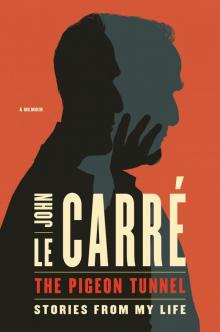 The Pigeon Tunnel: Stories From My Life
The Pigeon Tunnel: Stories From My Life Single & Single
Single & Single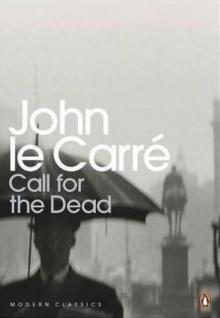 The Spy Who Came in From the Cold
The Spy Who Came in From the Cold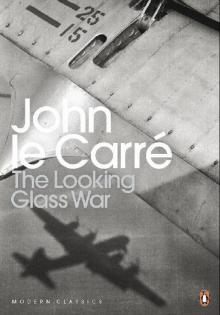 The Looking Glass War
The Looking Glass War The Night Manager
The Night Manager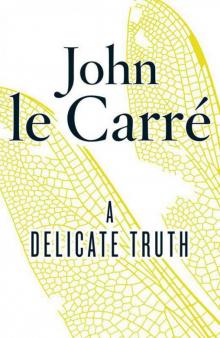 A Delicate Truth
A Delicate Truth A Perfect Spy
A Perfect Spy The Little Drummer Girl
The Little Drummer Girl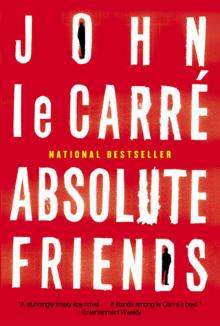 Absolute Friends
Absolute Friends A Murder of Quality AND Call for the Dead
A Murder of Quality AND Call for the Dead The Russia House
The Russia House The Tailor of Panama
The Tailor of Panama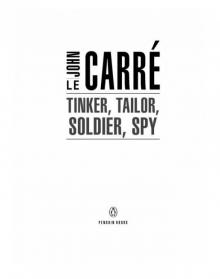 Tinker, Tailor, Soldier, Spy
Tinker, Tailor, Soldier, Spy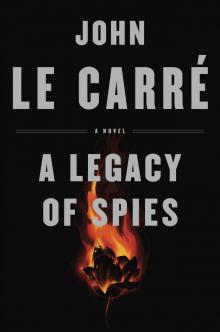 A Legacy of Spies
A Legacy of Spies The Mission Song
The Mission Song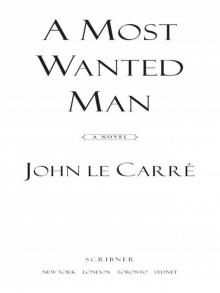 A Most Wanted Man
A Most Wanted Man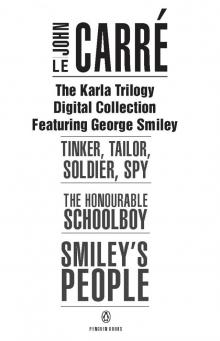 John Le Carré: Three Complete Novels
John Le Carré: Three Complete Novels The Secret Pilgrim
The Secret Pilgrim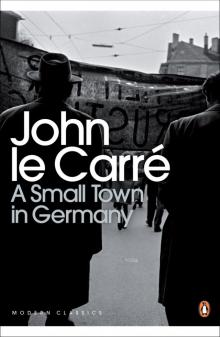 A Small Town in Germany
A Small Town in Germany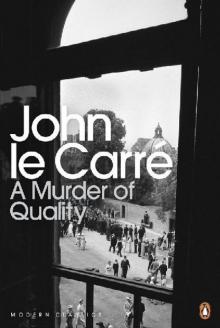 A Murder of Quality
A Murder of Quality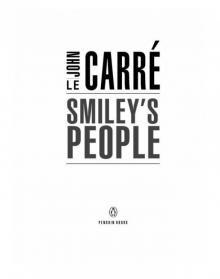 Smiley's People
Smiley's People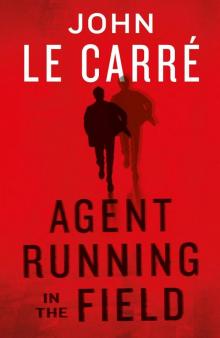 Agent Running in the Field
Agent Running in the Field The Spy Who Came in from the Cold s-3
The Spy Who Came in from the Cold s-3 The Pigeon Tunnel
The Pigeon Tunnel The Russia House - 13
The Russia House - 13 The Honourable Schoolboy
The Honourable Schoolboy Call For The Dead s-1
Call For The Dead s-1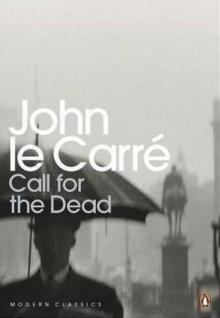 Call for the Dead
Call for the Dead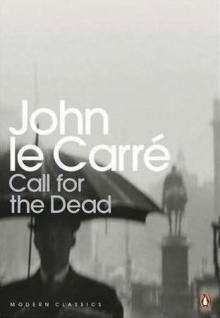 Call for the Dead - 1
Call for the Dead - 1